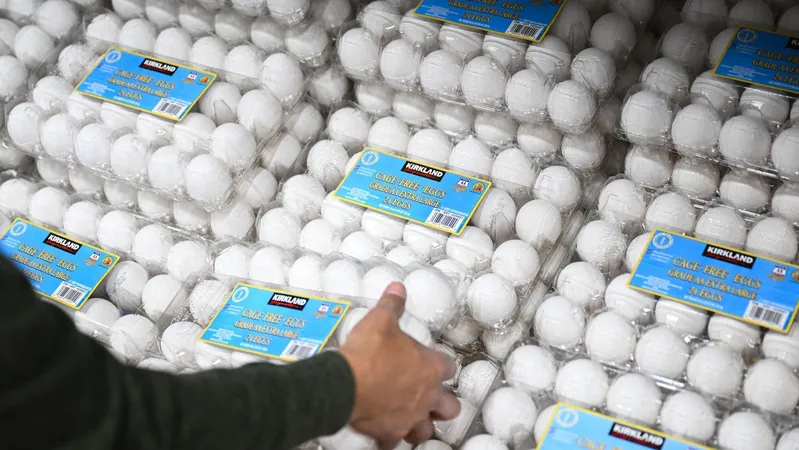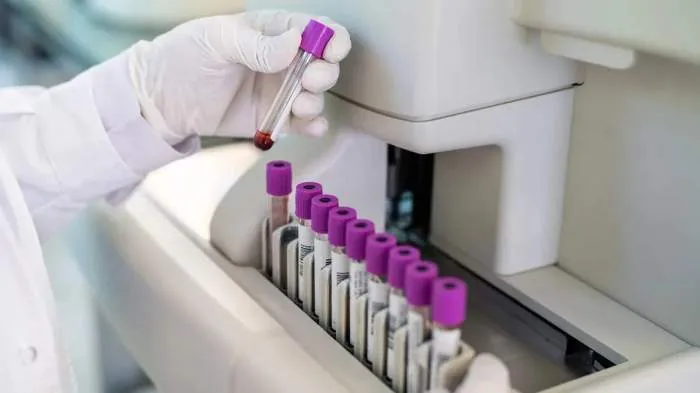
Everything You Need to Know About the Major Salmonella Recall: Cucumbers and Costco Eggs Affected
2024-11-29
Author: Ling
Everything You Need to Know About the Major Salmonella Recall: Cucumbers and Costco Eggs Affected
In a concerning development, the threat of salmonella has led to two significant recalls in the food industry that have the potential to affect numerous consumers across the United States. This includes the recall of 10,000 cartons of Kirkland brand eggs sold exclusively at Costco, as well as SunFed whole cucumbers distributed in over two dozen states. Alarmingly, health authorities have reported dozens of salmonella-related illnesses as these contaminated products made their way into American households.
Where Consumers Might Be Affected
The recalled Costco eggs have primarily been distributed in five states: Alabama, Georgia, North Carolina, South Carolina, and Tennessee, with the recall starting as of November 22, 2024. As for the cucumbers, they have been sold in a staggering 26 states, including Alaska, California, Florida, New York, and Texas, to name just a few. Additionally, consumers in Canada are advised to check their products as the cucumbers were also distributed in provinces like Alberta and British Columbia.
Understanding Salmonella
Salmonella is a type of bacteria that can be found in the intestines of both humans and animals. The CDC warns that the most common way people contract salmonella is through consuming contaminated food, drinking unclean water, or coming into contact with animal feces. Although there are over 2,500 known types of salmonella, fewer than 100 are typically responsible for the majority of human infections. Symptoms generally include diarrhea, fever, and stomach cramps that can last from four to seven days, but for vulnerable populations—such as young children, the elderly, or those with underlying health conditions—the consequences can be severe. Disturbingly, salmonella remains a leading cause of hospitalization and fatalities associated with foodborne illnesses.
How Contamination Occurs
Eggs can become contaminated with salmonella while still being formed inside infected hens or via contact with bacteria from feces after they are laid. Vegetables, such as cucumbers, may become tainted through similar exposure to animal waste or contaminated water, as well as through the use of infected tools during the harvesting process. Importantly, salmonella has a notorious ability to survive in various environments, potentially persisting for weeks in dry areas and months in water. Alarmingly, cases of antibiotic-resistant salmonella are increasingly being documented, further complicating treatment and prevention efforts.
Preventive Measures You Can Take
The CDC provides clear guidelines to help prevent salmonella infection. Key steps include washing all surfaces before food preparation, keeping raw meats separate from other foods, cooking all items to appropriate temperatures, and properly storing food below 40°F. Moreover, extra caution should be taken when interacting with animals, especially in environments like petting zoos or farms.
Recent Salmonella Outbreaks
Earlier this year, salmonella contamination linked to egg products from Milo's Poultry Farms resulted in more than 90 illnesses across 12 states, with 34 hospitalizations reported. Another recent outbreak was associated with pet bearded dragons, leading to 15 additional cases and four hospitalizations during summer.
Conclusion
Stay vigilant, as recalls like these may impact your health and safety. Always check your pantry if you believe you've purchased the affected items, and pursue preventive actions to protect yourself and your loved ones from the perils of foodborne illnesses.





 Brasil (PT)
Brasil (PT)
 Canada (EN)
Canada (EN)
 Chile (ES)
Chile (ES)
 España (ES)
España (ES)
 France (FR)
France (FR)
 Hong Kong (EN)
Hong Kong (EN)
 Italia (IT)
Italia (IT)
 日本 (JA)
日本 (JA)
 Magyarország (HU)
Magyarország (HU)
 Norge (NO)
Norge (NO)
 Polska (PL)
Polska (PL)
 Schweiz (DE)
Schweiz (DE)
 Singapore (EN)
Singapore (EN)
 Sverige (SV)
Sverige (SV)
 Suomi (FI)
Suomi (FI)
 Türkiye (TR)
Türkiye (TR)